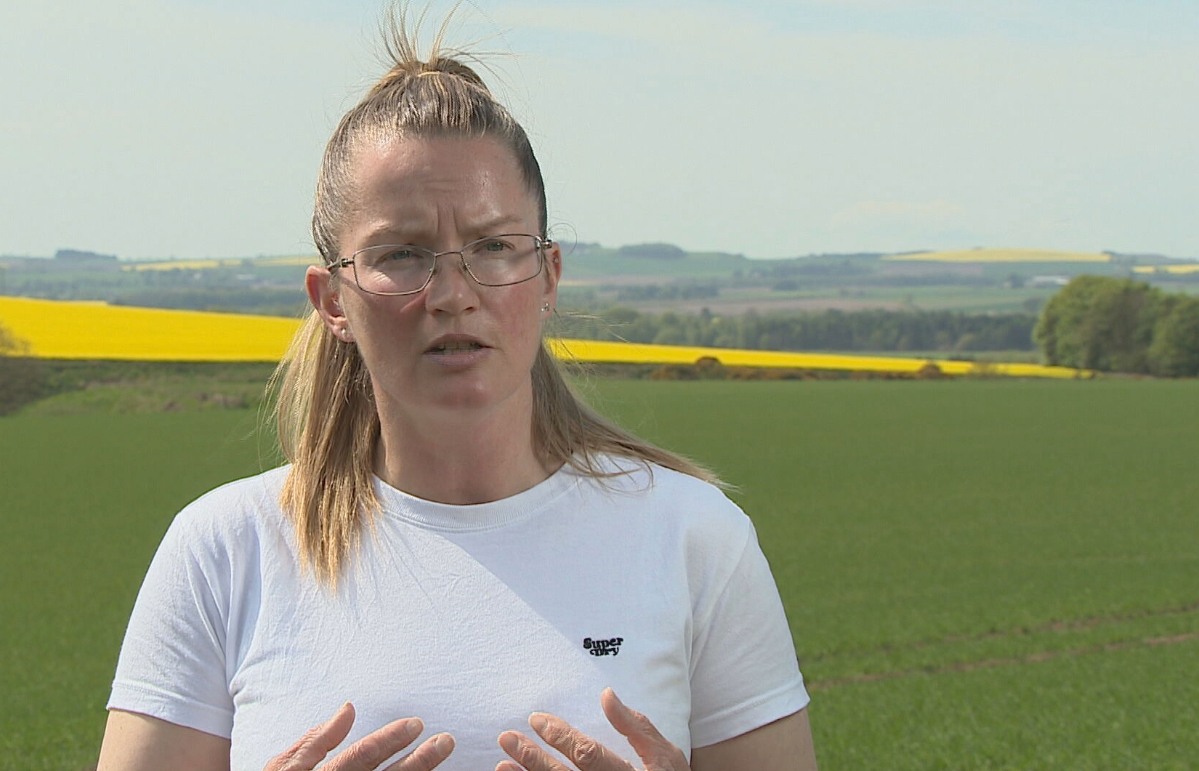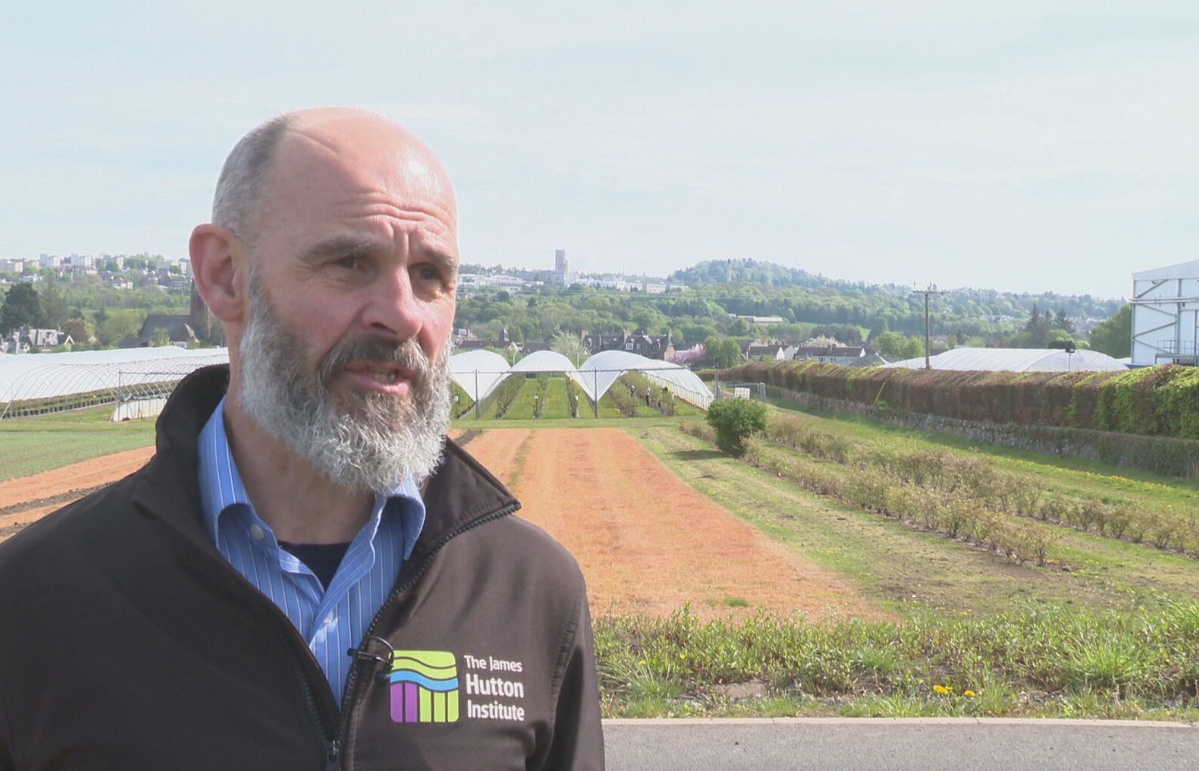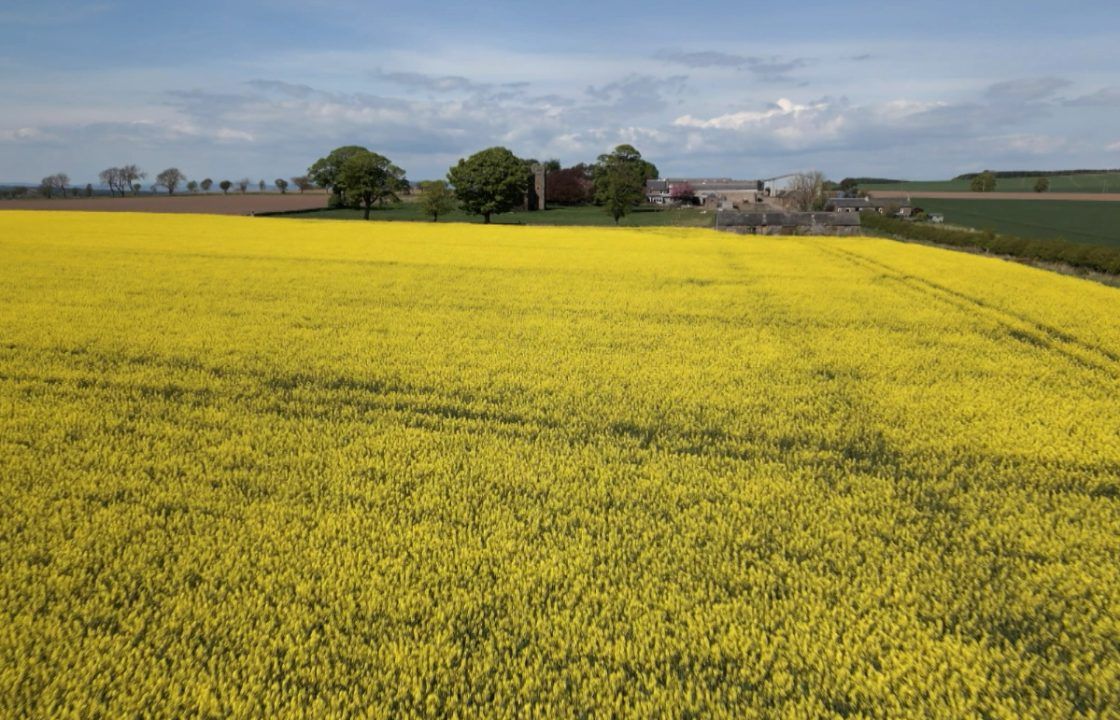Farmers have called for gene editing to be allowed for Scotland’s crops as legislation in England moves a step closer.
With an ever changing climate, some are arguing that editing the genes of crops could be a way to mitigate against extreme weather and help bolster food security in a changing climate.
Arable farmer Amy Geddes calls gene editing, which involves making slight changes to plant or animal DNA to create new strains or breeds, “really exciting”.
 STV News
STV News“Barley is Scotland’s most economic crop and UK’s second and the world’s fourth”, Amy said.
“Looking back to April last year, we had a horrendously late sowing.
“What we have now is great conditions but we could do with some rain. It’s really hard to manage that variance when its a particularly wet spring one year and it’s very dry the next.
“If we could have crops that are resilient to these changing conditions, that would be fantastic
“My understanding is gene editing is advanced plant breeding its doing what we are doing now but doing it faster.”
Gene editing involves making slight changes to plant or animal DNA to create new strains or breeds.
The technology is different to genetic modification (GM), which involves the transfer of entire genes from one species to another and has been strictly regulated by the EU.
Scientists say gene editing mimics natural processes.
Researchers at the James Hutton Institute near Dundee are running trials to create stronger plants – techniques that could be used commercially if gene editing was approved.
 STV News
STV NewsScientists such as Ian Toth, the director of Scotland’s Plant Health Centre and the National Potato Innovation Centre, and his team have been working on seed potatoes, a key export for Scotland and barley.
“Gene editing is when you manipulate the DNA that is already in the crop”, he said.
“That would happen naturally and could be done through natural breeding.
“There are many different traits or properties you are interested in improving and by doing this its means you could do it in a matter of months rather than years or decades by doing through conventional breeding alone.
“As the climate changes we can produce crops that are fit for purpose going into the future.”
But Ruth Watson, campaign founder of Keep Scotland the Brand, argues that gene editing could devalue Scottish produce.
She said: “I think the thing we have to remember is that shiny new technology offers a lot but there is no magic bullet. There is no silver bullet that is going to solve or mitigate climate change.
“It is good that thing that there is research again because the need understand and accelerate the breeding and the techniques that help us understand what gives crops resistance and what provides lineage that can be used, however, I think crops being used for research should be limited to research fields.
“Otherwise, it could lead to uses that we have no idea what that could lead to.”
In England legislation that would allow gene editing to take place is in its final stage and if approved could be enacted from August.
It has re-ignited the debate on whether it should be allowed here.
Previously, the Scottish Government took a stance against the technique – but has recently met with agricultural experts to gather views on gene editing.
No decision on whether it will be introduced in Scotland has been made, with questions remaining on what it would mean for local produce.
Government ministers say they’ll watch to see whether trading partners like the EU will allow the technique on their products as the debate amongst the agricultural sector continues.
Agriculture minister Jim Fairlie said: “No decisions on gene editing have been taken at this stage, we will ensure any decisions are taken in the national interest.
“We are closely monitoring developments on gene editing in the EU, and will decide on whether or not to allow gene edited crops to be grown or food using gene editing techniques to be produced, based on what is in the best interests and needs of Scotland.
“Recent and ongoing global events show the fragility of food security, and we are taking action to improve Scotland’s food resilience and strengthen our supply chains. The Scottish Government is continually monitoring risks or threats to the supply chain and working to mitigate future shocks and impacts on food security.
“Ministers met with stakeholders from the agricultural, food and drink, research and NGO sectors on the 27th March, to discuss their views on the use of gene edited crops and products in Scotland. Stakeholders raised the potential impact of gene editing on both crop yield and food security, and sustainability. Ministers will take into account stakeholder views, alongside developments in the EU, as they consider any next steps.”
Follow STV News on WhatsApp
Scan the QR code on your mobile device for all the latest news from around the country




























